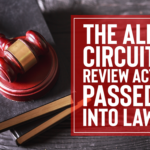Whistleblowers, by definition, have original information they can provide to the government which could potentially lead to an enforcement action against a third party. This is true whether the context is a False Claims Act (FCA) claim (e.g. Medicare/Medicaid fraud), or whistleblower allegations relating to securities violations, tax fraud, or commodities fraud. It is not uncommon for a whistleblower who has access to sensitive information regarding fraud perpetrated against the U.S. government or others to potentially have some exposure in the situation, either criminal liability or civil. Common situations for these types of claims are where an employee or manager who actually participated in the fraud is the one to come forward. Thus, a whistleblower may be worried that they could face criminal prosecution based on their allegations.
An Attorney Can Advise You On Your Exposure to Prosecution
When we speak of “whistleblowing,” it is important to understand that there are a variety of different actions and procedures that might be described as whistleblowing. And, with that, there are a number of different legal ramifications that a whistleblower could face depending upon the types of allegations being pursued and the whistleblower’s involvement in the underlying illegal actions.
Thus, there is no specific protection from prosecution for whistleblowers, but such individuals – with the assistance of their attorneys – can pursue other types of channels to protect themselves through the process. Only an attorney can advise you on the type of exposure you might face in your given situation.
One common way individuals with potential criminal exposure seek to protect themselves is through seeking an immunity agreement with prosecutors. This can happen at both the state and federal level. While different procedures might be involved, immunity agreements generally involve having your attorney speak to government authorities on your behalf, provide evidence of the type of information you are attempting to provide, and work towards an agreement. Such an agreement might include an agreement not to prosecute, an agreement to plead to a lesser charge, and/or cooperation credit to be taken into account in any sentencing.
Your Conversations With Your Attorney Are Confidential
You can speak with a whistleblower attorney about your situation without incriminating yourself, because an attorney is bound by attorney-client privilege to not reveal information about past events that you have shared, including past crimes. Through this process, your attorney can advise you on whether you might face criminal exposure and what can be done to mitigate it.
Also note that, with several whistleblower actions (including SEC actions), your name will be kept confidential through the entire process.
Work with Experienced Whistleblowing Attorneys You Can Trust
By bringing a whistleblower claim, you can fight corruption while also potentially obtaining a large financial reward for yourself. The experienced whistleblower attorneys of Kreindler & Associates will work with you every step of the way to determine your appropriate course of action, protect you from retaliation, and collect your much-deserved reward. Contact us today for an evaluation of your allegations.




